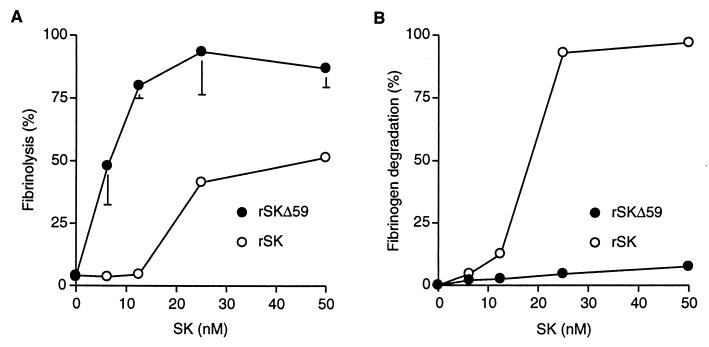Figure 3.
(A) Fibrinolytic effects of rSKs on human plasma clots. Human plasma (45 μl) was mixed with trace amounts of 125I-fibrinogen and clotted with calcium (5 mM) and thrombin (0.1 units) for 1 h at 37°C as described (34). After a wash with Tris-buffered saline (pH 7.4) containing the thrombin inhibitor PPACK (10 μM), the clots were suspended in 2 ml of plasma containing 10 μM PPACK. Various amounts of rSK and rSKΔ59 that had undergone active-site titration (0–50 nM) were added to the plasma, and, after 6 h, the amount of fibrinolysis was determined by measuring the release of soluble 125I-fibrin degradation products (34). The means ± SD are shown (but in some cases the SD are too small to be visible). (B) Fibrinogen degradation by rSK activator complexes. At the end of the fibrinolysis experiments presented in A, the plasma supernatants were isolated, mixed with aprotinin (100 units) to inhibit plasmin activity, and precipitated with sodium sulfite to determine fibrinogen concentrations, as described (34). The means ± SD are shown (but in some cases the SD are too small to be visible).

